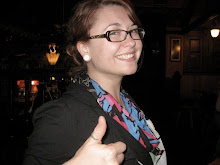This case has not only brought to light the injustice that Prita suffered but has also shown the power that the electronic public can have when working together for a cause. The internet has made global communication accessible and affordable for people across the globe, and is beginning to truly unit the world as a connected global community. Prita's case has shown what can happen if enough voices are heard. The internet also allowed the world to quickly hear of Ms. Mulyasari's plight; a Facebook group (while in mostly Indonesian is still informative) was set up to garner support and raise global awareness of the injustices of the case and the blogsphere is filled with individual and organizational blogs on the topic. This case is, in my opinion, a perfect example of Axel Bruns' idea of "citizen journalism." In Blogs, Wikipedia, Second Life and Beyond, Bruns discusses the traditional model for journalism or the "three stages of conventional news procedures", which follows a pattern of the news being selected by a closed group of journalists and editors that is trickled to the public. Citizen journalism breaks that mould by allowing the public access to news from their sources by way of internet. Bruns discusses:
Although the initial stories may consist of barely more than pointers to new information and news items elsewhere on the Web, citizen journalism extends them by enabling its communities to comment on such stories and thereby buildup more detailed, communal understanding of their background, context, and impact, as well as evaluating the information contained in the initial reports and combining or contrasting it with other available information (75).
This idea is shown within the Mulyasari case in the way that the global electronic community came together to share the available information and not allow the more powerful hospital to cover-up the story. It is interesting to speculate if this type of public exposure is the future of journalism in the information age. How long can traditional means of communication such as television broadcasts and newspapers keep up with the lightning fast pace that the internet can provide? We can only hope that future innovation in communications will continue to bring the world together in both news and tradition.
